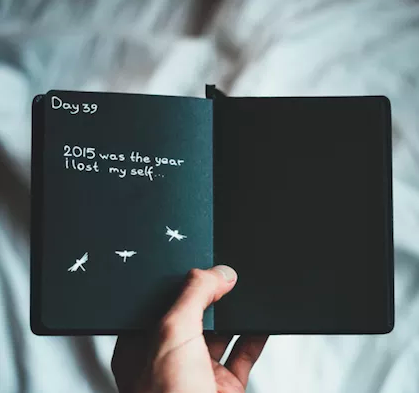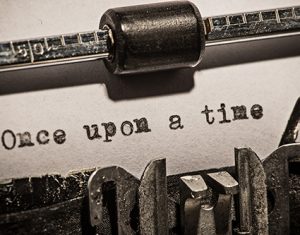
Writing has become very public these days. We write on Twitter and Facebook, on blogs and in emails. We work hard to write well, be clever, capture attention, and because we’re good at writing, we’re often successful.
It feels like writing, doesn’t it? That series of events, write-post-garner attention-repeat, feels just like the experience of writing some other piece of writing and getting it out in the world and capturing attention.
The problem is that offering every thought up for public consumption often drains them all of depth. Another problem is that those polished jewels you’ve tossed out to Twitter/etc have used up a bunch of creative energy you might have spent on your actual writing.
Obviously, none of us are going to give up public writing. It has become part of our lives. Here I am, writing a blog (and enjoying it, just so you know). This morning, I wrote a bunch of Facebook posts, and I’ll avidly check back to see if anyone has responded. That’s what we do now. That’s what I do.
If writing is important to you—and you wouldn’t be here if it wasn’t—you should have a private writing practice as well as all that public work. Call it a journal. Call it a writer’s notebook. A diary. Lots of people are keeping bullet journals these days, and writing in them with their juicy fountain pens and special ink (my current favorite is Walden ink, with a Noodler’s Ahab Flex), which I think is a big plus—writing by hand is a way to access different pathways in the brain. Writing by hand is very personal, intimate, and creates a compelling emotional record over time.
The idea of a writer’s notebook has been with us for a long time. Mark Twain kept a notebook for most of his life, starting when he was twenty-one and couldn’t remember the instructions at a job. He eventually filled over 40 pocket notebooks,
“with observations of people he met, thoughts on religion and politics, drawings and sketches of what he saw on his travels, potential plots for books, and even ideas for inventions (he filed 3 patents during his lifetime). Many of his entries consist of the short, witty, pithy sentences he is famous for. He felt that if he did not write such things down as they came to his mind he would quickly forget them. He would also record little snippets in his notebooks of what had happened that day, such as what he had eaten and who he had seen. And finally, he wrote dirty jokes in the back of them.” (from The Pocket Notebooks of 20 Famous Men)
On LitHub, Dustin Illlingsworth said of writer’s notebooks:
“…what we find within their pages are wild, shapeless, violent things; elegant confessions and intricate codes; portraits of anguish; topographies of mind. Prayers, experiments, lists, rivalries, and rages are all at home here, interbred, inextricable from one another. A piece of petty gossip sits astride a transcendent realization. A proclamation of self-loathing becomes a paean to literary art. News of publication shares the page with the most banal errands imaginable.”
Just like life.
A writer’s notebook is meant to be everything, anything. A place to meander, to think, to wail and gnash teeth, to experiment and play. It’s a private log of your own life, whatever bits of it you want to set down. It’s meant to be about you.
In perhaps the best exploration of the subject, “On Keeping a Notebook,” from Slouching Toward Bethlehem, Joan Didion writes,
“We are brought up in the ethic that others, any others, all others, are by definition more interesting than ourselves; taught to be diffident, just this side of self-effacing…Only the very young and the very old may recount their dreams at breakfast, dwell upon self, interrupt with memories of beach picnics and favorite Liberty lawn dresses and the rainbow trout in a creek near Colorado Springs. The rest of us are expected, rightly, to affect absorption in other people’s favorite dresses, other people’s trout.
“And so we do. But our notebooks give us away, for however dutifully we record what we see around us, the common denominator of all we see is always, transparently, shamelessly, the implacable ‘I.’”
(I love that she lived in my town once upon a time, that she went to my same school for second grade. We washed our hands at the same restroom sinks, many decades apart, but it links us. Maybe some of her writing magic lingered and soaked into my skin through some creative alchemy.)
That viewpoint of ourselves, looking at the world through our own eyes and recording whatever we see, whatever we feel, leads to voice, the one and only thing that belongs to one and only us.
In a world increasingly public, that feels urgently important. If you’re always posing for the world, polishing clever sound bites, taking the elegant selfie, how can you know what you feel, or where you feel it, or how it burns, if you are not perfect? How can you experience your own rabid jealousy or howling broken-heartedness or sour pettiness?
If you don’t know it, feel it, see it and taste it, how will you write it into a character?
I challenge you to start a writing practice, or get back to one if you’ve drifted away. Get yourself a notebook—it doesn’t matter what kind. I like Moleskines because they’re flexible and come in many sizes and they have ruled pages that are just right for my handwriting. You might like a dot grid or blank. One of my sons carries around tiny Field Books and writes in teeny handwriting in them. It doesn’t matter, but there can be some pleasure in finding something you like. Probably better if it isn’t fancy, because then you’ll want your thoughts to be all shiny and precise and that’s not what this is about. You want to give yourself permission to be messy or mean or petty if the day requires it. Also find a pen. This does matter a bit—if it feels good to write your words, you’ll do more of it. Gel pens are often really easy to write with and cheap.
Start carrying around that notebook and that pen and when you have coffee, write for awhile instead of checking email or obsessively scrolling through Twitter on your phone. Then, take five minutes at the end of the day to write down what it was like to live this day. What did you do in the morning, and the afternoon, and the evening? What did you learn? A sentence will do.
Do it every day. Find a way to keep that notebook at the ready, so that you can see what you see when you look into the world— if you and I sat side by side at a coffeeshop and wrote about the scene in front of us, we would seize upon different details. I’ll find the turquoise blouse. You’ll go for the smell of the coffee and how it reminds you of waking up in the morning for school when you were a child and breakfast was served on a red formica table. Go with it, wherever it goes.
In the moment… I am watching my dogs tear up another quilt I brought home from Goodwill. I should stop buying them, but I hate it when they have to sleep on the plain floor.
If it feels intimidating, try using prompts, such as those found in Natalie Goldberg’s Writing Down the Bones, a wonderful book about the writer’s notebook. Poke around online and read what other writers have written into their notebooks and journals.
Do you keep a notebook? Have you done so in the past? What are your favorite writer’s notebooks?
You may also like this

Seven Thoughts on Pastors Writing Books
Rewind my life six years and I would tell you that one of my biggest dreams in life is to get a book published. I hoped that someday, somehow, somewhe

6 Simple Ways To Stay Inspired As A Writer
It’s a contradiction we writers know all too well: wanting to write with every fibre of our being, but lacking the necessary inspiration to get star

7 Myths that Keep Pastors from Writing
A retired pastor asked a friend who owned a pickup truck to stop by his house. Once there, he loaded several heavy-duty plastic bags into the back of

Five Reasons Every Pastor Should Be A Writer
If you’re a pastor, then you should be writing. Ok, wait! Before you start with a list of excuses just hear me out (besides, I know all the excuses

5 Reasons Why Pastors Should Consider Writing a Book
Writing isn’t a desire or skill I was born with. You see, I’m dyslexic and re-learned how to properly read when I was 22-years-old. The idea of

5 Things Only Serious Writers Do
Whether you’re a <a href="https://www.copyblogger.com/advance-your-writing-career/" target="_blank" rel="noopener"

21 Harsh But Eye-Opening Writing Tips From Great Authors
<p class="adjust_blocks_for_ads" data-valid-location="true">A lot of people think they can write or paint or draw or sing or

7 WRITING HACKS FOR BUSY PASTORS
Nothing is more oppressive than the blank white screen of a Microsoft Word document. If you preach regularly, you know the feeling already. Your deadl

Should Pastors Sell & Promote Their Books?
"<a href="http://www.crosswalk.com/church/pastors-or-leadership/">Pastors</a> who sell their books are only in it for the

10 Reasons Christians Should Affirm Women as Pastors & Preachers
I’ve heard a lot of arguments as to why women are prohibited from teaching and preaching. Just kidding. <blockquote>There aren’t a lot o

17 Reasons Pastors Should Write a Book
Pastor, you shepherd a church looking to you for leadership and spiritual guidance. Your days are packed with innumerable opportunities to influence a

10 Steps To Getting A Literary Agent
Last time, we covered <a title="10 Steps to Writing a Novel by Gilly McAllister" href="https://www.writersandartists.co.uk/writers/

Write Something That Will Change Your Life
It seems like a tall order, to write something that will change your life. And it is. But I think it’s still worth striving for. By changing your

10 Ridiculously Simple Steps for Writing a Book
The hard part of writing a book isn’t <a href="https://goinswriter.com/get-published/" target="_blank" rel="noopener&qu

How to write an eBook in 2018 and make
How to make money writing and publishing eBooks Part 1. The first post in this series is on how The cash wrap is composed out of old hardcovers at The

21 Quotes That Remind Us Just How Much
How to make money writing and publishing eBooks Part 1. The first post in this series is on how The cash wrap is composed out of old hardcovers at The

Books Mini Poster, the love of real books
How to make money writing and publishing eBooks Part 1. The first post in this series is on how The cash wrap is composed out of old hardcovers at The

24 Images About Bookstores That Every
The cash wrap is composed out of old hardcovers at The Last Boottkstore in Los Angeles. (While in LA I also learned about the Portland, OR, store trad
Categories
- Blog OmegaPublishing (22)
- Uncategorized (1)